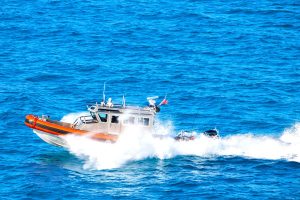How common are multi-million dollar Florida sexual abuse lawsuit verdicts and settlements? The likelihood of such an outcome really depends on the facts of the case, but usually cases resolved by larger sums make their way into the headlines.
Often, as our West Palm Beach sexual abuse lawyers can explain, these larger verdicts involve some type of punitive damages.
Punitive damages are paid to the plaintiff/victim, but are imposed on defendants for punishment for egregious wrongs or deterrent for future bad acts — as opposed to strictly compensating a victim for specific losses. Punitive damages are less likely to be awarded than other types of damages (physical pain and suffering, mental and emotional anguish, past and future medical bills, etc.), but they can be appropriate in many of these circumstances.
Punitive damages made up 66% of a recent $9 million Florida sexual abuse lawsuit verdict against the U.S. Tennis Association. In that federal case, jurors found the organization failed in its duty to protect a teen athlete from being repeatedly victimized by her coach between the ages of 12 and 19, who was allowed to continue working 1:1 with teen girls even after he’d sexually assaulted an employee. The USTA said it did not know of the prior sexual assault until the coach was fired following allegations made by the plaintiff. The plaintiff, now 25, said her coach repeatedly sexually battered her when she was a minor.
Of the $9 million awarded in that case, $6 million was specifically for punitive damages.
Recent Six-Figure Sexual Abuse Lawsuit Verdicts and Settlements
Sexual assault cases usually involve an organization, non-profit, employer, school, government agency or property owner that failed in its duty to provide reasonable security, protection or oversight, which in turn made the victim vulnerable to attack or exploitation.
Among some of the recently-reported high-profile six-figure damages sexual abuse cases:
- A $2.5 million verdict in Arizona against a “trouble teen boarding school” that charged $9,000 monthly for “tough love,” but instead reportedly failed to address physical, mental and even sexual abuse by staffers against the teens. Most of that damage award consisted of punitive damages.
- A $4.2 million verdict against the U.S. Twirling Association and a coach after a federal jury in New York found that the organization was negligent in protecting her from sexual assault on an international trip to Lima, Peru. The organization reportedly did not provide security after promising to do so and exaggerated the experience of the coach. The teens were reportedly taken on numerous outings to nightclubs and private parties. The victim alleged the president of the club that sponsored the trip drugged and raped her.
- The Archdiocese of Baltimore’s deadline to file claims against its Chapter 11 bankruptcy case expired in June, with more than 700 victims of child sexual abuse by clergy seeking a portion of $1 billion in damages.
- A $2 million settlement against a women’s prison in Hawaii led to an upgrade of camera systems throughout the corrections facility. Prisoners alleged sexual abuse by guards, particularly in so-called “blind spots” of the prison an din control booths. It was revealed that 40% of the prison’s camera systems weren’t functioning. Staff reportedly bribed inmates with snacks, methamphetamine and other privileges in exchange for sex. Because of the inherent power dynamics, prisoners cannot consent to sex with guards, even if both parties are adults.
- A $1.6 million verdict was awarded to a New Jersey woman who alleged she was sexually abused by her teacher at school for months. The district was 60% liable. The teacher, now a local minister, was deemed 40% responsible.
- The University of North Carolina School of the Arts has agreed to pay $12.5 million to former students who allege they were raped, groped and sexually harassed by teachers and staff.
- A girl in Oregon was awarded $9 million in a verdict against her school and other parties for failure to protect her from sexual harassment and rape by male peers at her school while she was a third-grader.
Possible Damages in Florida Sexual Abuse Lawsuits
Victims of sexual assault who file civil lawsuits against the perpetrator and (more commonly) other parties responsible can seek financial compensation for: Continue reading
 South Florida Injury Lawyer Blog
South Florida Injury Lawyer Blog






